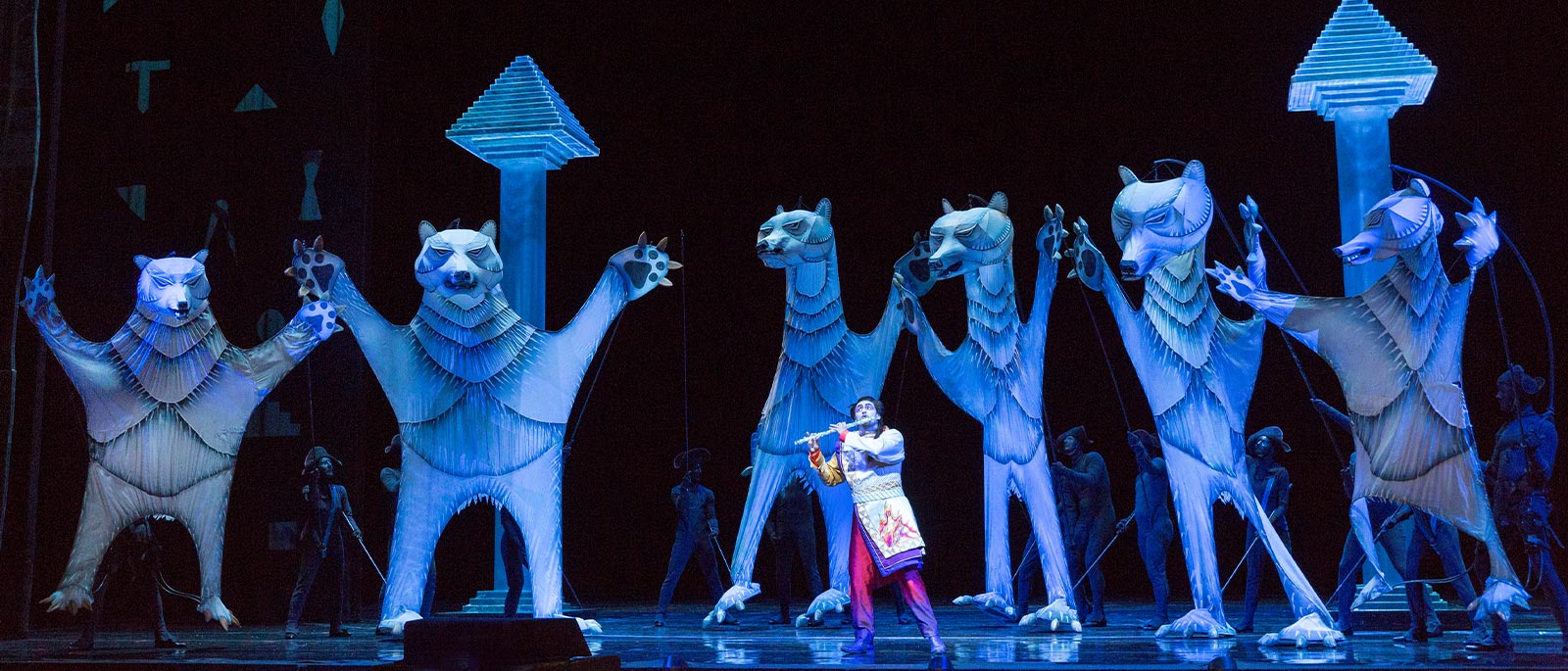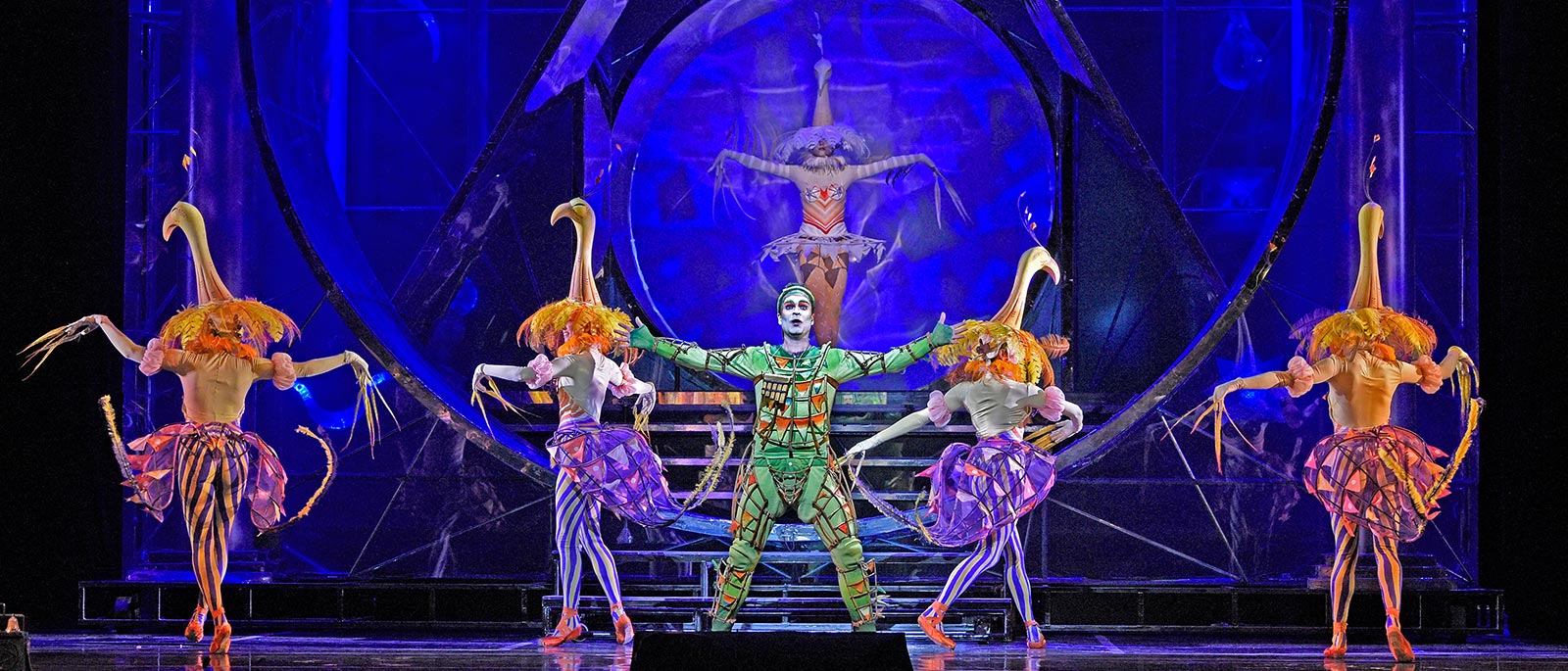
Wolfgang Amadeus Mozart
The Magic Flute—Holiday Presentation
This production ran: Dec 16 - Jan 6
This production is in the past.
Overview
The Met’s abridged, family-friendly version of Mozart’s musical fairy tale returns for the holiday season, with special holiday pricing. Maestro Duncan Ward makes his company debut conducting Julie Taymor’s irresistible production. Tenors Ben Bliss and David Portillo share the role of Tamino, the noble prince on a quest to win the fair princess Pamina, sung by sopranos Joélle Harvey and Sydney Mancasola. The cast also features baritones Joshua Hopkins and Benjamin Taylor as the birdcatcher Papageno, soprano Aleksandra Olczyk as the Queen of the Night, and bass Soloman Howard as Sarastro. Tickets from $32.50
The start time of The Magic Flute on Friday, December 30, has been changed to 7PM. Matinee tickets will still be valid for the adjusted time. If you are unable to attend the new performance time, you may request a complimentary exchange into another performance, or you may request a refund to your original method of payment. To request an exchange, log onto your My Account or visit the box office.
Abridged production of The Magic Flute a gift of The Andrew W. Mellon Foundation and Bill Rollnick and Nancy Ellison Rollnick
Original production of Die Zauberflöte a gift of Mr. and Mrs. Henry R. Kravis
Additional funding from John Van Meter, The Annenberg Foundation, Karen and Kevin Kennedy, Bill Rollnick and Nancy Ellison Rollnick, Mr. and Mrs. William R. Miller, Agnes Varis and Karl Leichtman, and Mr. and Mrs. Ezra Zilkha
Revival a gift of Viking
Languages
Languages sung in The Magic Flute—Holiday Presentation
Sung In
English
Titles
Title languages displayed for The Magic Flute—Holiday Presentation
Met Titles In
- English
- German
- Spanish
Timeline
Timeline for the show, The Magic Flute—Holiday Presentation
Estimated Run Time
1 hrs 50 mins
-
House Opens
-
110 mins
-
Opera Ends
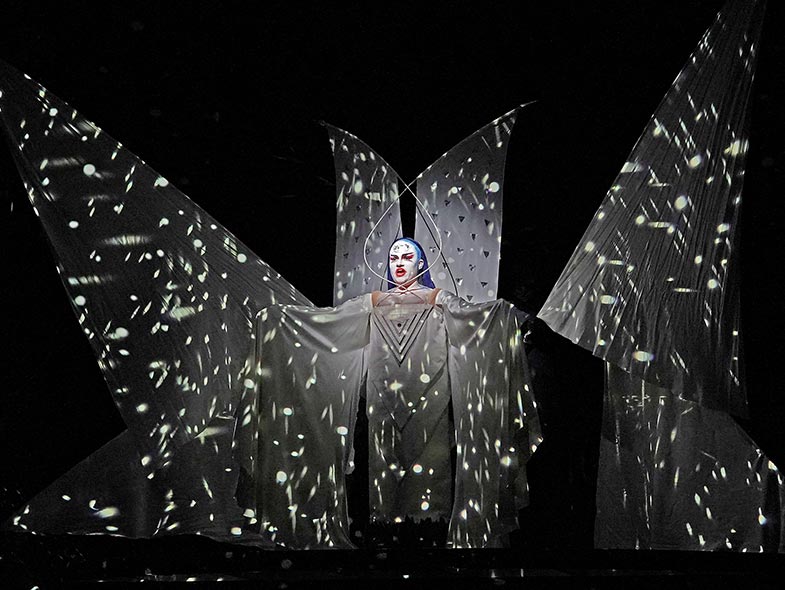
World premiere: Freihaus-Theater auf der Wieden, Vienna, 1791. A sublime fairy tale that moves freely between earthy comedy and noble mysticism, The Magic Flute (Die Zauberflöte in the original German) was written for a theater located just outside Vienna with the clear intention of appealing to audiences from all walks of life. The story is told in a singspiel (“song-play”) format characterized by separate musical numbers connected by dialogue and stage activity, an excellent structure for navigating the diverse moods, ranging from solemn to lighthearted, of the story and score.
Creators
Wolfgang Amadeus Mozart (1756–91) was the son of a Salzburg court musician who exhibited him as a musical prodigy throughout Europe. His achievements in opera, in terms of beauty, vocal challenge, and dramatic insight, remain unsurpassed. He died three months after the premiere of Die Zauberflöte, his last produced work for the stage. The remarkable Emanuel Schikaneder (1751–1812) was an actor, singer, theater manager, and friend of Mozart who wrote the opera’s libretto, staged the work, and sang the role of Papageno in the initial run.
Production
Julie Taymor
Set Designer
George Tsypin
Costume Designer
Julie Taymor
Lighting Designer
Donald Holder
Puppet Designers
Julie Taymor and Michael Curry
Choreographer
Mark Dendy
English Adaptation
J. D. McClatchy
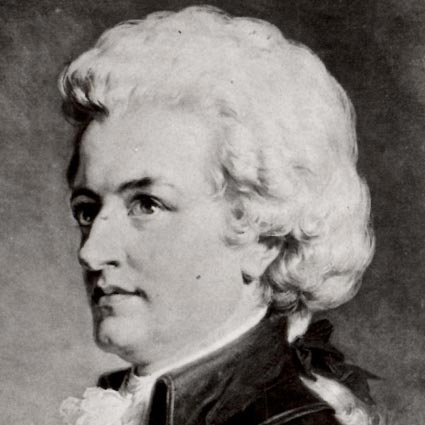
Composer
Wolfgang Amadeus Mozart
Setting
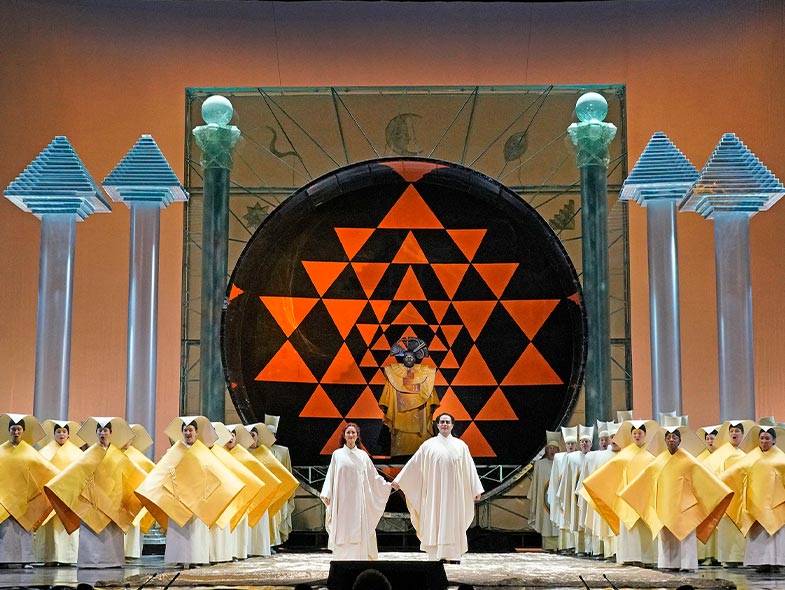
The libretto specifies Egypt as the location of the action. That country was traditionally regarded as the legendary birthplace of the Masonic fraternity, whose symbols and rituals populate this opera. Some productions include Egyptian motifs as an exotic nod to this idea, but most opt for a more generalized mythic ambience to convey the otherworldliness that the score and overall tone of the work call for.
Articles
Music
Mozart and his librettist, Emanuel Schikaneder, created The Magic Flute with an eye toward a popular audience, but the varied tone of the work requires singers who can specialize in several different musical genres. The baritone Papageno represents the comic and earthy, the tenor Tamino and the soprano Pamina display true love in its noblest forms, the bass Sarastro expresses the solemn and the transcendental, and the Queen of the Night provides explosive vocal fireworks.
